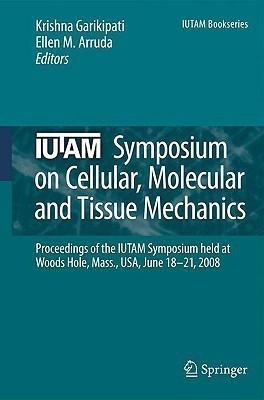IUTAM Symposium on Cellular, Molecular and Tissue Mechanics(English, Hardcover, unknown)
Quick Overview
Product Price Comparison
Mechanics plays a central role in determining form and function in biology. This holds at the cellular, molecular and tissue scales. At the cellular scale, mechanics in?uences cell adhesion, cytoskeletal dynamics and the traction that the cell can generate on a given substrate. All of these in turn - fect the cellular functions of migration, mitosis, phagocytosis, endocytosis and stem cell differentiation among others. Indeed, if cells do not develop the appropriate stresses, they are unviable and die. These aspects of cell mechanics are frequently used by mainstream biologists, as traditional mechanicians may be surprised to learn. There is a growing view that many functions of the cell are mechanical in nature even though chemical signals play crucial roles in the processes. Free energy barriers control transitions between different conformations of vir- ally every macromolecule including DNA, RNA, the adhesion protein integrin, the motor protein myosin, and the proteins vinculin and talin that link the cytoskeleton to focal adhesions. The strain energy can be a signi?cant component of the total free energy barrier.For binding to take place, the macromolecules need to be in conf- mational states that expose chemical groups without steric hinderance. The kinetics of chemical reactions are therefore strongly in?uenced by the conformational strain energy.


